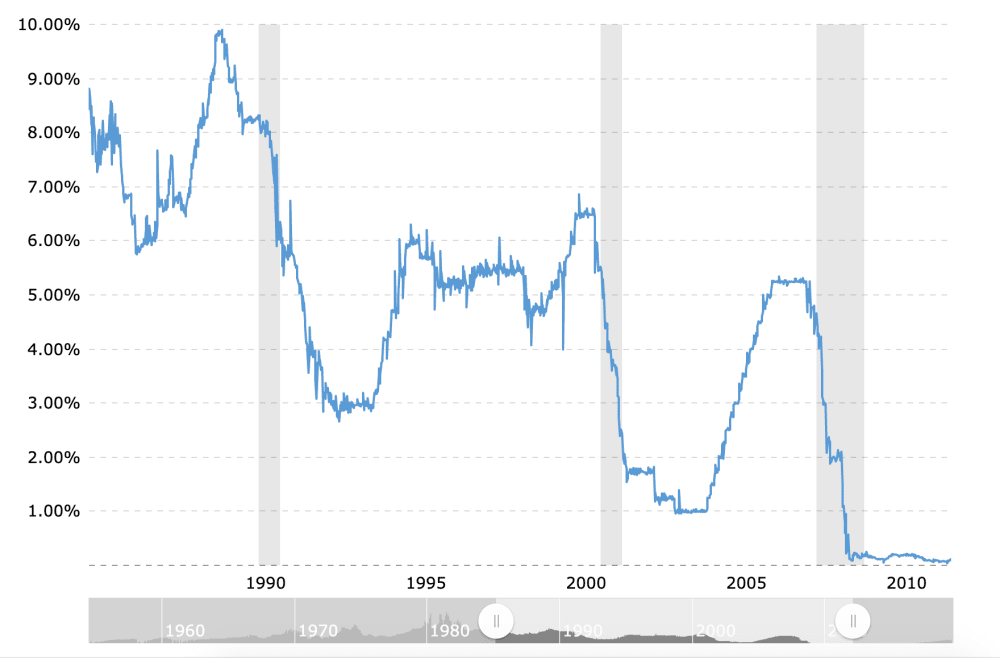I was shocked when I first heard that the Fed was expected lower interest rates during this past July meeting of the FOMC. I mean, they only starting raising them not even two years ago.. The tantrum following the last hike was vicious but short-lived and with markets now at all-time highs it didn't make sense to me. So I did what I often do and set out to look at the data. My expectation at the start was that that the first interest rate cut in a cycle, meaning the first rate decrease following a series of increases, would occur after the market peaked during the recession that typically has followed. I soon discovered that is not the case.

I compared the S&P-500 Adjusted Closing Price since 1954 (monthly) vs the Historical Federal Funds Rate (monthly) from the same point in time. The trend appears to show that an interest rate cycle reversal, a rate cut following rate hikes, came before the corresponding market top and not after. Looking at the rate on the timeline of recessions confirmed the notion that rate cuts typically precede a recession as well. At least the initial cut in the cycle.
The Fed announced last Wednesday at 2PM that they were indeed cutting interest rates. After the typical 30 minute gamma sweep and price whiplash the press conference began. I wondered whether or not my
Cutting interest rates during a strong economy to slow it down and prevent inflation is Economics 101. One of the many concepts I learning while getting an MS Finance degree. One of the problems with many Economic models is that assumption of the 'rational economic man' or 'homo economicus'. If human beings were rational then the phrase "Up on Escalators, Down in Elevators" would not make sense.
https://www.investopedia.com/terms/e/economic-man.asp

